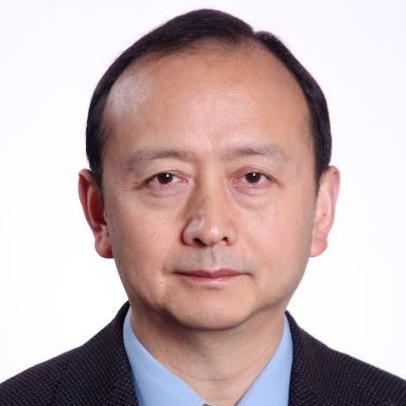The facts are clear: On Wednesday August 21, 2013, the Syrian conflict entered a different stage with the deadliest use of chemical weapons since the Iran-Iraq War. A few weeks later Washington confirmed the deployment of sarin gas in the attack, while the UN verified the use of the chemical weapons.
In the West, the concern is that militant terrorist groups could seize these weapons, or that regime forces backed by Iranian and Russian material support could transfer chemical weapons to fighters in Lebanon. In the emerging economies, the concern is also that a Western intervention could further inflame instability in the region, as has been the case in Afghanistan, Iraq and Northern Africa.
In both the advanced and emerging world, there is also the concern that, in the ethnically split Syria, the conflict could lead to a sectarian, zero-sum turmoil in even if al-Assad regime were toppled.
From unilateralism to multipolar global governance
At first, the international community – read: the major advanced economies – sought to condemn the attacks. In practice, the issue divided nations. Along with French President Francois Hollande, President Obama supported a US military strike against targets in Syria. The UK’s House of Commons voted against military intervention. In the Middle East and North Africa, the issue split the Arab League.
To shun critics in the divided Congress, American public and the jaded post-Afghanistan and post-Iraq international community, President Obama pledged that any US-led military strikes against Syria would be “limited and proportionate.”
In the US, the war-weary Congress gave its support to the White House, but not a carte blanche. Rather, it sought to prohibit the president from putting ground troops in Syria “for the purpose of combat operations.” After all, the Pentagon had estimated it would take “over 75,000 troops” to secure Syria’s chemical weapons. Moreover, both the popular opinion and the US military personnel overwhelmingly oppose air strikes on Syria, as evidenced by US polls.
Then came President Putin’s New York Times op-ed in which he urged Washington to avoid unilateral military action and supported international cooperation to find a negotiated solution to the Syrian conflict. Despite much initial criticism by the G7 advanced economies, President Putin’s intermediation offered a timeout. It deferred the need for unilateral military intervention that Europeans have shunned since the Bush era. It shifted international spotlight to the UN, which brought in a more inclusive international community.
Meanwhile, Chinese Foreign Minister Wang Yi met with UN Secretary-General Ban Ki-moon on Syria and development issues at the United Nations headquarters. In particular, Wang said China is willing to send experts to join the process of inspecting and destroying Syria’s chemical weapons. In Beijing’s view, it is important for the international community to reach consensus on the issue as soon as possible, to send out a message of unity.
Most importantly, President Putin’s underscored the importance of the emerging economies – particularly Russia, China and India – whose strategic importance can no longer be sidelined. What this episode suggests is not an anomaly in international affairs, but a new compelling trend.
Legacies of colonialism and Cold War
In the US, Russia is seen as the key obstacle because Moscow has supported Syria since the 1960s. But there is much blame to share. When Saddam Hussein used nerve gas against Iranian troops and Kurd civilians in the 1980s, Washington protected Hussein from punishment.
The Syrian challenge is rooted in the legacies of colonialism and Cold War. If Moscow has supported Damascus for almost half a century, it was Washington that initially extinguished the Syrian democracy.
As a French mandate following World War I, Syria gained independence in 1946. The early years saw the first military coup in modern Syrian history by General Hussni al-Zaim. With Washington’s discrete backing, it was his military junta that overthrew the ailing country’s first democratic national government. In turn, Al-Zaim signed several deals with US oil companies for building the Trans-Arabian Pipeline.
Although al-Zhaim’s rule endured less than five months, it paved the way to a series of coups. By the early 1960s, the Arab Socialist Ba’ath Party took power. Starting in 1970, Hafez al-Assad ruled Syria with an iron hand until his death in 2000. Thereafter, his son Bashar al-Assad was elected president in an election in which he ran unopposed, with promises of reform. But the “Damascus spring” ended after September 11, 2001. While political movement was suppressed, some market reforms were initiated.
Unlike many other nations, Syria escaped the impact of the global crisis in 2008/9 relatively unscathed. Growth was impaired mainly through linkages to trading partners in the region and Europe. But early hopes crumbled after a popular protest in Dera’a in March 2011, which sparked a series of demonstrations and escalating violence. The unrest spread leading to calls to oust the al-Assad regime.
The human loss of the Syrian conflict has been staggering. The impact on the economy has been catastrophic with a 3 percent contraction in 2011 and about 20 percent in 2012. At the end of last year, annual inflation soared to 50 percent.
What Syria desperately needs is economic development and transition support. Otherwise, it could turn into a failed state.
Toward multipolar global governance
After the use of chemical weapons in World War I, the Geneva Protocol prohibited the first use of chemical and biological weapons since 1925. The more stringent Chemical Weapons Convention came into an effect in 1997. But after several futile military interventions in the Middle East and South Asia, advanced economies are less able and willing to enforce these conventions unilaterally, or without the support of emerging economies.
In Chinese view, the destruction of Syria’s chemical weapons and a political settlement for its ongoing crisis should be advanced at the same time. The Chinese government has also promised to help destroy Syria’s chemical weapons arsenal “when asked.”
Indeed, what we have witnessed in the past few weeks is one of the first international conflicts in the post-global crisis era in which traditional unilateral responses by advanced economies have been replaced by multipolar responses by emerging economies. This is a constructive step to the right direction. It precipitates the rise of the nascent multipolar world.
In the past, military intervention has been only tempting to the leaders of the advanced economies, which share a history of colonialism. While such interventions cannot always be avoided, emerging economies, which share a history of colonial humiliation, will emphasize the importance of political settlements and economic development as well.
Today, no international action is truly effective and appropriately enforceable unless it is supported by the US and its Western allies and by the new leaders of the emerging world. Only then will external intervention represent a truly global response.
Dr. Dan Steinbock is the research director of international business at the India, China and America Institute (USA) and a visiting fellow at the Shanghai Institutes for International Studies (China) and EU Center (Singapore).




